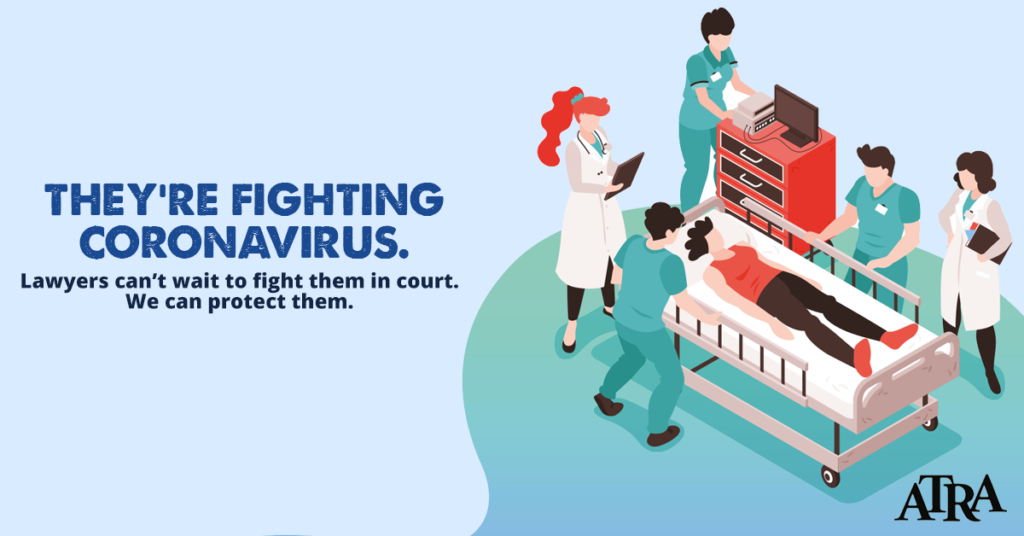‘Highly Unusual’ Rehearing of Louisiana Case Raises Judicial Independence Concerns
Louisiana Supreme Court Waffles Under Political Pressure, ATRA Brief Urges Court to Stand Strong

This white paper explores tort liability concerns related to the COVID-19 pandemic and considers potential solutions.
Each day, thousands of people in the United States are contracting coronavirus. The virus is devastating families, stretching the ability of health care providers to help those who become sick, and crippling businesses and the economy. Manufacturers have ramped up production of medical supplies and protective equipment and are investigating treatment options and developing vaccines.
Some personal injury lawyers, however, view individuals exposed to COVID-19 as a large new pool of plaintiffs, and health care providers and businesses that aid in the response effort or provide essential services as defendants to cast blame. Personal injury law firms are already recruiting individuals to “sue now” even if they have not contracted the disease. The first lawsuits targeting health care providers, employers, retailers and other businesses for COVID-related injuries have been filed. Many more are to come.
States should proactively adopt legislation that distinguishes legitimate claims from no-injury lawsuits. States can place reasonable constraints on the types of lawsuits that pose an obstacle to the coronavirus response effort, place businesses in jeopardy, and further damage the economy.
ATRA applauds the nation’s governors who have stepped up to address liability concerns stemming from COVID-19. These executive orders generally rely on the governor’s authority under each state’s emergency powers statute to modify or suspend enforcement of state laws that pose an obstacle to the state’s ability to respond to a crisis. The risk is that this type of executive action has not been tested in court. Plaintiffs’ lawyers are certain to challenge the governors’ authority to provide this liability protection through use of emergency powers.
This paper explores tort liability concerns related to the COVID-19 pandemic and considers potential solutions.
Louisiana Supreme Court Waffles Under Political Pressure, ATRA Brief Urges Court to Stand Strong
Left unchecked, these jurisdictions will continue dragging down economic growth and undermining justice through rampant lawsuit abuse.
Claimants Given Opportunity to Vote on Plan; Judge to Reconsider Scientific Validity of Plaintiffs’ Experts
Legitimate consumer protection demands sound science and impartial analysis — not distorted data designed to manufacture lawsuits.
Law Firms Spent $168M+ on 2.2M Ads in Georgia
ATRA’s Latest Studies Reveal Financial Influence and Lack of Transparency in Pennsylvania’s Campaign Finance Systems